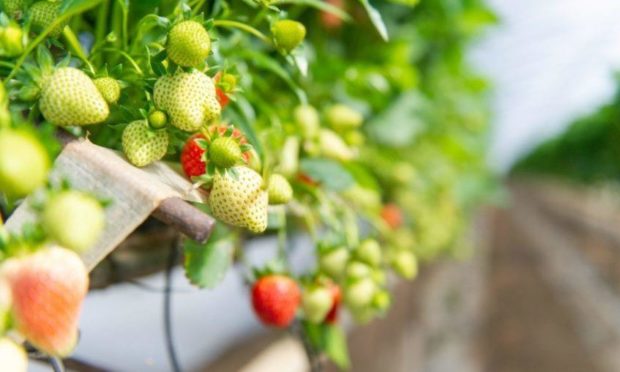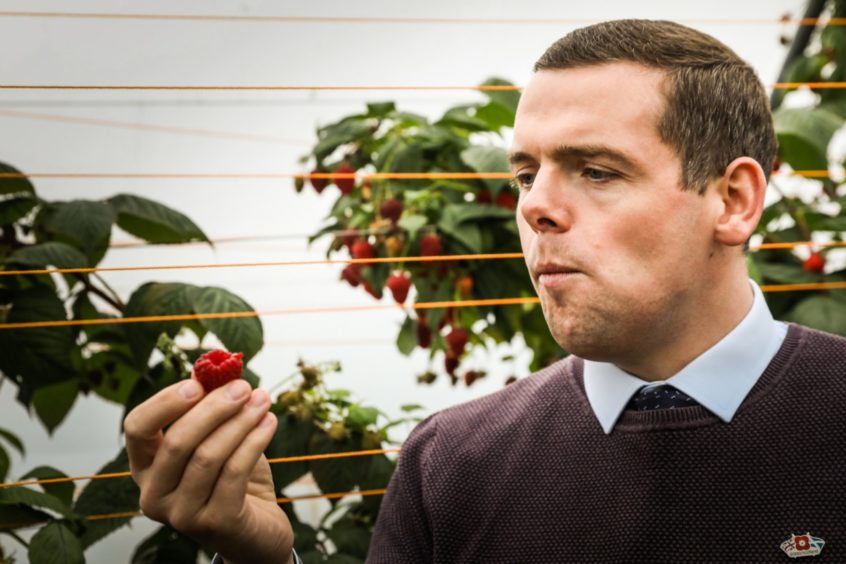Three times as many seasonal agricultural workers are to be allowed into the UK to work next year following pressure from Scotland’s farmers.
The UK Government has announced an extension to the existing pilot of the Seasonal Agricultural Workers Scheme (Saws) that will see up to 30,000 overseas workers able to come to pick soft fruits and complete other farm work in the coming year.
Workers, who would not meet the “criteria” for a “skilled visa” will be allowed to work and reside in the UK for up to six months.
The SNP, however, warned the numbers allowed were insufficient for Scotland’s farms.
SNP agriculture spokesperson and Angus MP Dave Doogan said: “While Scotland’s agriculture sector cries out for seasonal workers every year, the UK Government is hell-bent on ploughing ahead with an immigration system that will result in valuable produce left to rot in Scotland’s fields – compounding the double-hit of Covid and Brexit.
“Scotland’s agriculture sector has been consistently failed by dodgy deals made by governments in Westminster, but these latest plans make clear that the Tory government has no respect for the agriculture sector in Scotland.
“Scotland employs around 10,000 seasonal workers in agriculture. On the basis of these numbers, that will mean a significant cut to the seasonal workforce the UK Government will allow from next season. Plans also fall far short of calls from the NFUS – who argued for more than double the quota proposed by the UK Government.”
The latest move follows the failure of the UK Government’s campaign to recruit domestic workers to take on roles this past summer, which had a “mere 15% success rate“.
Despite this, the government said the Pick For Britain programme identified where “vacancies” existed in the country’s agricultural sector and said it would repeat the advertising initiative in 2021.
National Farmers Union Scotland (NFUS) had previously warned the original scheme — allowing only 10,000 workers to apply for visas — would be crippling to the industry, forecasting a massive drop in the amount of soft fruit able to be picked.
The union welcomed the increase in the number of workers allowed to take up employment on UK farms, having originally called for the scheme to allow 70,000 overseas workers into the country.
Collaboration
Writing for us, Secretary of State for Scotland Alister Jack said the country’s food producers are being listened to.
He said: “Tuesday’s announcement on seasonal agricultural workers represents the fruits of our labour between the UK Government and food producers.
“I hope that we have delivered a solution that will enable growers in Scotland to continue to thrive and produce the high-quality fruit and vegetables for which they are renowned throughout the UK.”
‘Success of measure yet to be known’
The chairman of NFU Scotland’s specialist crops committee, James Porter, said it will take time to measure whether or not this updated scheme is a success.
He said: “The government’s announcement today that there will be a seasonal worker scheme allowing 30,000 workers from outside the UK to undertake vital seasonal agricultural work is welcome.
“This is an issue on which NFU Scotland has lobbied at the highest levels since the outcome of the referendum and the significant upscale of the seasonal worker scheme – from 10,000 to 30,000 permits – has been hard won.
“Following close dialogue with government, NFU Scotland is welcoming this significant increase on the understanding that the EU Settlement Scheme will allow workers who have undertaken work on Scottish horticulture farms prior to 2021 to return.
“And following the major, industry-led effort to recruit domestic workers during the 2020 pandemic, growers will continue to utilise all tools to encourage as much recruitment from within the UK as possible in 2021.
“Whilst today’s news is very welcome, the success of the measure is yet to be known and it will depend in large part on the number of pre-settled and settled status workers returning from the EU in 2021.
“We look forward to working closely with the UK Government on the operation of the scheme in terms of cost for employers, which operators will be licensed to operate the scheme, and gain clarity about of the longevity of the scheme.
“We would also like to thank the hard work of MPs from across Scotland who recognised the significance of this issue for the future productivity of the sector and whose support has been vital in securing a positive outcome.”
Scottish Conservatives hail ‘very good news’
Scottish Conservative leader Douglas Ross said: “This is very good news after such a challenging year.
“Many farmers and growers told me about the vital need to secure enough workers following an end to freedom of movement.
“They were clear that the proposed number of 10,000 was not enough.
“In my meetings with the prime minister I set out the case for an increase to at least 30,000 workers and I’m pleased he and the government worked with those of us who were calling for this increase.
“It’s welcome this has now been agreed and shows a willingness to address specific needs for different sectors across the UK.”


